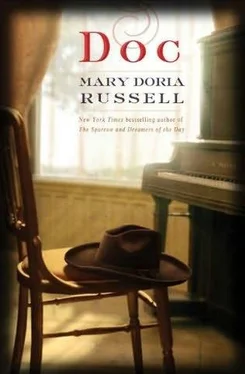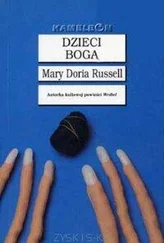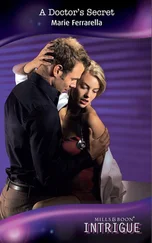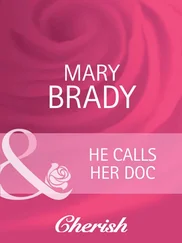Morg’s face went blank. “Hell, Doc. I don’t remember. Why?”
“Just curious. Johnnie might’ve gone into the barn to bring out that horse.” Doc went back to his work and to Dickens. “So, now, what do you think about the odious Bill Sikes? There’s a pure bully for you, no redemption involved.”
Morg didn’t answer. Doc looked up. “Struck a nerve, did I?”
Morgan’s face had darkened, but Doc was looking past him now. “Tell me about bullies, Wyatt. I wager you have made a study of the breed.”
Morg turned and wondered how long his brother had been standing in the doorway, listening.
Wyatt took off his hat and hung it on a peg. “They were beaten,” he said simply. “Ninety-nine out of a hundred still are, inside. A man beats his boy, he wants a son who won’t buck him. He’s trying to make a coward. Mostly, it works.” Face expressionless, Wyatt walked to the window and held the curtain aside, gazing back toward Iowa as he spoke. “That’s why a bully will fold. You just … look at him, the way his old man did. It’s not anger. It’s scorn. A bully sees that look? He’s nine years old again. Small and weak, like his pa wanted him. It’s all he can do to keep from crying.”
Doc looked at Morgan, whose eyes slid away.
“And the hundredth boy?” Doc asked Wyatt.
“We can go either way. Kill the old man, or try to become a better one.” Wyatt dropped the curtain. “You ready for me?”
“Just about,” Doc said. “Have a seat.”
“A very natural appearance.” That’s what Dr. J. H. Holliday had promised, and that’s what he delivered.
It was just as well that neither Wyatt nor Morgan inquired about the provenance of the teeth themselves, for Wyatt’s new ones were among the hundreds of thousands collected from battlegrounds, sorted by type and size, and made available for restorative dentistry for many years after the war. With John Henry’s sketches and detailed measurements to go by, his cousin Robert had found a pair of upper centrals that matched Morgan’s closely.
“It’ll feel strange for a while,” Doc warned, making the final adjustment, “but a couple of days from now, you’ll think they were never missin’. You still need to be careful when you eat. Don’t bite into apples. Slice them up like you’ve been doin’. And don’t take up smokin’ a pipe. Too much torque’ll deform the mount … And if somebody’s likely to hit you in the mouth—”
“Right! I’ll be careful! Can I look now?”
“Not yet. Say ‘Mississippi.’ ”
“Mithithi—Oh, hell , no!” Wyatt cried, sitting up in the chair. “Doc, thith—”
“Hush, now,” Doc said. “Morgan, you laugh, and I will slap you flat. It’s goin’ to take some practice, Wyatt. Don’t let the tip of your tongue touch the teeth. Bring it down and back, just a hair. Try it again.”
“Mizzith—Hell! Mizziss—”
“Damn your eyes, Morgan!” Doc wheeled, coughing, and pointed to the door. “Go wait in the lobby!”
Chastened but still grinning, Morgan left the room, though he stayed in the hallway to listen, out of sight.
“Pay that pup no mind, Wyatt,” Doc was saying. “Try again. Just the tip of the tongue … Curl the tip back a little. There you go! Yes! You’re already doin’ better.”
This went on for about ten minutes, with time out for Doc’s cough. When Wyatt was getting it right about half the time and seemed confident that he’d get the hang of it, Doc told him, “Now try ‘fifty-five.’ Bring your lower lip up to the teeth. Just rest the lip against them … Again. Good. Yes! Better! That one’s easier, isn’t it … Now try ‘very vivid.’ It’s the same movement but voiced. Put your hand on your throat. Feel the vibration?”
“You should be in bed,” Wyatt told Doc, who was coughing again.
There was a clink of glass on glass. Doc must have been pouring himself another drink. The desk chair scraped back.
“Not yet,” Doc said, sounding breathless but serene. “Take a look.”
Morg moved closer and peered in through the crack between the door and its frame. For a while Wyatt sat still, and Morgan found himself thinking, Poor soul—like Doc always said—poor soul, he can walk straight into a mob, but this …
It was about then that his own vision blurred, but Morg could hear the barber chair creak and footsteps as Wyatt got up and went to the mirror.
Blinking hard, Morgan wiped his eyes and tried to remember if he’d ever seen Wyatt look—really look —at himself that way. There was a small, embarrassed smile, and then a broader one …
In the past weeks, while Doc worked toward this moment, Morgan had often thought about how relieved and glad he’d be to see his brother made whole again. Now the moment had come at last, but it wasn’t how he thought it would be. Instead of happiness, he felt a great weight of something like grief pressing on him. Sadness for all the years Wyatt’s smile was gone. Anger, too, remembering how Nicholas Earp had tried to make cowards of all his sons.
It came to Morgan that Nicholas must have been a beaten boy, too, and that meant Grampa Earp was, as well. Which was no surprise, really, when Morg thought about that mean old man. How many sons were in that chain? Morgan wondered, and grief gave way to the pride he’d felt the day his brother Wyatt stood up to his first bully and put an end to a chain of vengeful, frightened, beaten boys.
Wyatt turned from the mirror. “Doc, I don’t know what to th—I don’t know what to say.”
“Sure, you do, Wyatt: Mississippi. Fifty-five.”
Morgan shifted so he could see Doc, whose eyes were filled with pleasure and satisfaction and … love, almost. All mixed.
“Go on, now,” the dentist said softly. “Take a ride on that fine horse of yours, Wyatt, out where no one can see or listen. Practice makes perfect, y’hear?”
The men he worked with didn’t notice. If anyone had asked Chuck Trask or John Stauber, for example, they might have said Wyatt was quieter than usual the next few days, or that Dick Naylor was getting an awful lot of exercise.
Women saw a difference. He seemed a little less flinty and remote, and they were glad to see him loosen a bit. Morgan’s girl, Lou, told Wyatt that he looked real nice. And Mattie didn’t complain when he left her alone to go out riding and work on his words. Bessie said it was money well spent and didn’t give Wyatt a hard time about how he should have paid her and James back first. Kate seemed prickly about it, but even she admitted that Doc had done a remarkable job.
Mabel Riney asked straight out, “What’s changed, Wyatt?” Her husband, John, was sleeping off a drunk, and she was working the tollbooth while Wyatt waited around for a cattle company due to come across the river. “Something’s different,” she said, “but I can’t make out what.”
“Got my teeth fixed,” he told her.
“Lemme see,” Mabel said, like he was one of her sons.
He smiled, sort of, but looked away, coloring up like a boy. It was sweet, how shy he was about telling her.
“Doc Holliday done that?” she asked, impressed.
He nodded.
“How much he charge?” she asked, and whistled when he told her.
“It was a lot,” Wyatt agreed, “but my teeth always used to hurt. Not anymore.”
They passed the time awhile, Mabel asking things and Wyatt answering. He told her a lot about ether, which was horrible and made you think you were smothering, but then you didn’t feel it when teeth were pulled or drilled, and you just had to eat soft things afterward while you healed up.
When the cowboys got to the bridge, Wyatt was all business again. Mabel took the tolls, same as usual, but started thinking about going to see the dentist herself, because she had some teeth that had been bothering her for years.
Читать дальше












